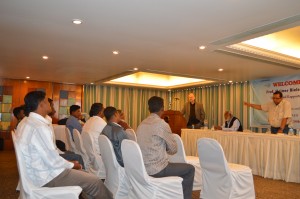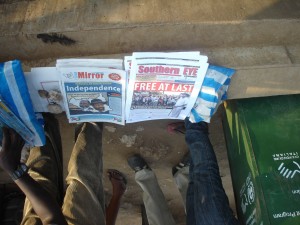As we often say in India, the poor can never catch a break! Misfortunes are heaped on them by the governments, the privileged, and natural and human-made disasters.
The COVID-19 pandemic is one of those disasters that continues to make the poor in India poorer. In praising the effective way the Modi government has slowed the pandemic’s growth, many have not focused on the great human tragedy of the poor and migrant workers of the country. Human Rights Watch estimates that in India, 80% of its population works in the informal sector, with one-third of them being casual laborers. When the Prime Minister locked down the country for 21 days (the first period of lockdown) with less than four hours of notice, he did not mention what he had planned for migrant workers. He simply had not prepared for the humanitarian crisis that would follow because it was not the kind of crisis that would affect him politically or personally, I suppose. In a matter of minutes, the poor of India had lost their income entirely. There began a desperate scramble to get back to their villages from the cities, hoping that agricultural produce from the farms would feed them. However, there was no transportation available to them. After a lot of hue and cry, some state governments made some arrangements with long lines forming in the cities for a turn to get on these buses. Many had no choice but to walk back to their villages from the cities. Hundreds of kilometers to be covered over days in the scorching heat. Images of people walking on the highways carrying their possessions and babies, children in tow, and the sun beating down, is heartbreaking. On top of this misfortune, many of these migrant workers are often beaten by the police for breaking lockdown rules!
In the comfort of my home here in the United States, I usually have an anxiety attack when I read or watch these news reports. The absolute cruelty we witness in this world is sometimes too much to bear. I shed tears when I watched this BBC reporter give his shoes to one of the migrants walking back to his village without any footwear. One other heartbreaking story was that of 15-year old Jyoti Kumari, who drove her wounded father on her bicycle to get them from the city to their home in the village. It took her seven days and she covered 1200 km. Jyoti says it is her love for her father, desperation, and lack of options, which gave her the courage to undertake the arduous journey. The Cycling Federation of India offered to pay for her to participate in the next national trials in New Delhi. Jyoti, who had dropped out of school because of lack of money, was also promised government funding to attend school, a seat in grade IX, a new bicycle, and a uniform. She chose to continue her studies.
This story makes me want to hold this young girl tight, do something to make her and her family’s life more comfortable, help her study, and support her as she finds her career. I am therefore baffled that Ivanka Trump would tweet about Jyoti in 140 characters to say, “This beautiful feat of endurance & love has captured the imagination of the Indian people and the cycling federation.” The New York Times called Jyoti “a lionhearted girl” who “inspires a nation.” No, she does not inspire us! She shames us. I am ashamed of my government and of our middle-class who have turned their backs on these migrant workers. The migrants who survive by helping us, the middle class, and the wealthy, get through our daily lives (they provide us fruits and vegetables, clean our homes, care for our children and drive us in our cars) have been abandoned. I am also disappointed with Ivanka Trump (not for the first time) and the New York Times for romanticizing the poverty and desperation of the poor during this pandemic.
Of course, they are not the only people who romanticize poverty. Take the number of Bollywood films that have minted millions in depicting the poor for entertainment. Poortainment, bringing entertainment and poverty together, is not a new phenomenon. It has been growing in the past decades around the world. It complements the “entrepreneurial spirit of the poor” that was showcased by poverty tourism operators.
You would have thought the pandemic would make people more sensitive to suffering. You would hope people would not send a tone-deaf tweet to someone’s story of desperate survival. You would hope people would stay uncomfortable and horrified by Jyoti Kumari’s story. You would expect that citizens would question our governments and demand more accountability from them, especially our democratic governments. You would wish that none of us would hear another story of suffering. Unfortunately, no. There is something about privilege that prevents us from sharing that pain. Can we at least promise not to romanticize poverty?





